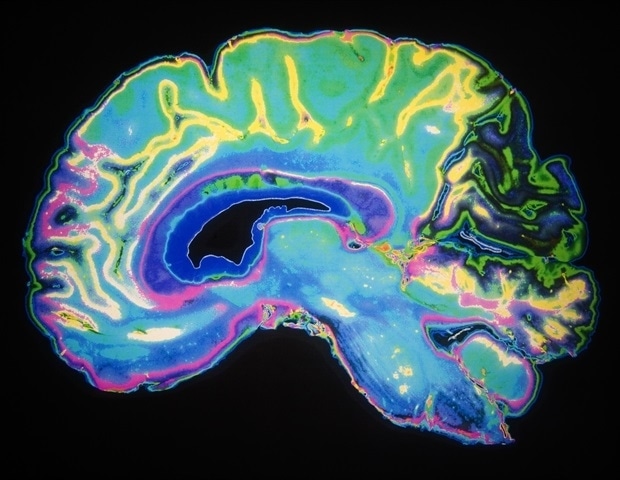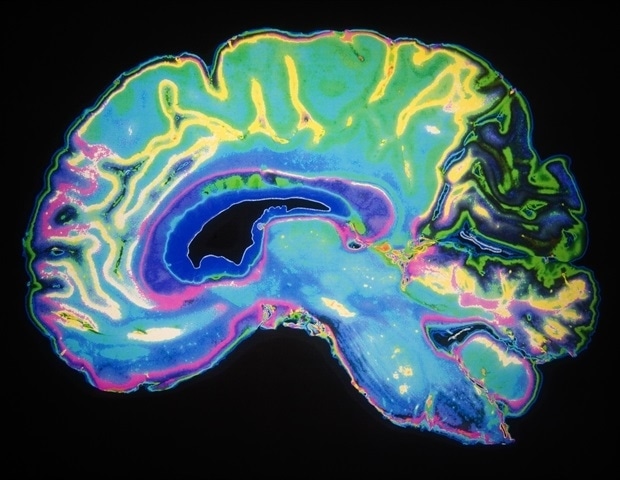Revolutionizing the Human Mind: Unlocking the Potential of Brain Implant Technology
Imagine a world where prosthetic limbs can move with the thought of a person, where paralyzed individuals can regain control over their bodies, and where memories can be restored with unprecedented accuracy. Sounds like science fiction, right? Not anymore. Breakthroughs in brain implant technology are rapidly bridging the gap between fantasy and reality, opening up new avenues for medical treatment, neurological research, and even cognitive enhancement.

Advances and Challenges in Brain Implant Technology

Brain implant technology has made significant strides in recent years, offering new hope for patients with neurological disorders. Recent breakthroughs in brain implant research have sparked interest and excitement, but it’s essential to consider the challenges and concerns associated with this technology.
Advances in brain implant technology have led to the development of neuroprostheses, which are devices that can restore mobility, alleviate pain, or improve sensory functions. These implants can also influence consciousness, cognition, and affective states, making them a complex system to evaluate.
In a paper published in The Lancet Digital Health, a scientific team led by Stanisa Raspopovic from MedUni Vienna explored the progress and challenges in brain implant research and development. The team highlighted the need for careful consideration of the psychological implications of brain implants and the importance of protecting sensitive data.
The use of neural implants has not only physical but also psychological effects, which requires special attention. Researchers are calling for particular ethical and scientific care when conducting clinical trials. The team also emphasized the need for interdisciplinary collaboration and transdisciplinary expertise to ensure the safe and effective development of brain implants.

Recent Breakthroughs in Brain Implant Research
Recent breakthroughs in brain implant research have been promising, with reports of patients achieving remarkable results. For instance, a paraplegic patient in the USA was implanted with a brain chip as part of a clinical trial, allowing him to control his wheelchair, operate his computer, and even play chess.
However, the patient experienced a decrease in precision and an increase in delay between his thoughts and computer actions. This highlights the need for careful consideration of the potential challenges and limitations of brain implants.

Impact on Neurological Disorders and Patient Outcomes
Brain implant technology has the potential to revolutionize the treatment of neurological disorders such as paraplegia, chronic pain, Parkinson’s disease, and epilepsy. These implants can restore mobility, alleviate pain, or improve sensory functions, offering new hope for patients.
However, it’s essential to consider the potential risks and challenges associated with brain implants, including data protection and security risks, psychological implications, and the need for careful consideration of patient outcomes.
Current State of Brain Implant Technology and Its Applications
The current state of brain implant technology is rapidly evolving, with new advancements and applications emerging. Brain machine interfaces, for instance, have the potential to revolutionize the treatment of neurological disorders and enhance performance.
However, it’s essential to consider the potential risks and challenges associated with brain implants, including data protection and security risks, psychological implications, and the need for careful consideration of patient outcomes.
Challenges and Concerns in Brain Implant Development
While brain implant technology has made significant strides, there are several challenges and concerns that need to be addressed. Ethical considerations, technical challenges, and data protection and security risks are just a few of the issues that require careful consideration.
Technical Challenges and Limitations of Brain Implants
Brain implants are complex systems that require careful consideration of technical challenges and limitations. The development of brain implants requires sophisticated understanding of neural interfaces, data processing, and device design.
The current state of brain implant technology is rapidly evolving, but there are still significant technical challenges to be addressed. For instance, the precision and delay between patient thoughts and computer actions can be a significant issue, as seen in the case of the paraplegic patient.
Data Protection and Security Risks Associated with Neural Implants
Neural implants collect and process sensitive data, which requires careful consideration of data protection and security risks. Unsecured data transmission, inadequate data protection guidelines, and the risk of hacker attacks are just a few of the potential vulnerabilities that require special precautions.
The use of neural implants has not only physical but also psychological effects, which requires special attention. Researchers are calling for particular ethical and scientific care when conducting clinical trials.
- Data protection and security risks: Unsecured data transmission, inadequate data protection guidelines, and the risk of hacker attacks are just a few of the potential vulnerabilities that require special precautions.
- Technical challenges: The development of brain implants requires sophisticated understanding of neural interfaces, data processing, and device design.
- Psychological implications: The use of neural implants has not only physical but also psychological effects, which requires special attention.
Future Directions and Implications
The future of brain implant technology holds significant potential, but it’s essential to consider the potential risks and challenges associated with its development and use. Researchers and developers need to become increasingly adept at integrating a sophisticated understanding of ethical and socially responsible innovation into their enterprises.
Potential Risks and Benefits of Widespread Brain Implant Adoption
The potential risks and benefits of widespread brain implant adoption are significant. On the one hand, brain implants have the potential to revolutionize the treatment of neurological disorders and enhance performance.
However, on the other hand, there are potential risks associated with brain implants, including data protection and security risks, psychological implications, and the need for careful consideration of patient outcomes.
Integrating Brain Implants into Clinical Practice and Healthcare Systems
Integrating brain implants into clinical practice and healthcare systems will require careful consideration of several factors, including data protection and security risks, technical challenges, and psychological implications.
The development of brain implants requires sophisticated understanding of neural interfaces, data processing, and device design. Researchers and developers need to become increasingly adept at integrating a sophisticated understanding of ethical and socially responsible innovation into their enterprises.
The Role of Artificial Intelligence and Machine Learning in Brain Implant Technology
The role of artificial intelligence and machine learning in brain implant technology is significant. These technologies have the potential to enhance the performance of brain implants and improve patient outcomes.
However, it’s essential to consider the potential risks and challenges associated with the use of artificial intelligence and machine learning in brain implant technology, including data protection and security risks, technical challenges, and psychological implications.
Neuroprostheses and Brain Machine Interfaces
Neuroprostheses and brain machine interfaces have the potential to revolutionize the treatment of neurological disorders and enhance performance. These technologies have the potential to restore mobility, alleviate pain, or improve sensory functions.
Restoring Mobility and Functionality in Patients with Neurological Impairments
Neuroprostheses and brain machine interfaces have the potential to restore mobility and functionality in patients with neurological impairments. These technologies have the potential to enhance the performance of patients with conditions such as paraplegia, chronic pain, Parkinson’s disease, and epilepsy.
The Psychological and Social Implications of Brain Implant Technology
The psychological and social implications of brain implant technology are significant. The use of neural implants has not only physical but also psychological effects, which requires special attention.
Researchers are calling for particular ethical and scientific care when conducting clinical trials. The team also emphasized the need for interdisciplinary collaboration and transdisciplinary expertise to ensure the safe and effective development of brain implants.
Emerging Trends and Innovations in Neuroprostheses and Brain Machine Interfaces
Emerging trends and innovations in neuroprostheses and brain machine interfaces are significant. These technologies have the potential to enhance the performance of patients with conditions such as paraplegia, chronic pain, Parkinson’s disease, and epilepsy.
However, it’s essential to consider the potential risks and challenges associated with the use of neuroprostheses and brain machine interfaces, including data protection and security risks, technical challenges, and psychological implications.
Regulatory Frameworks and Industry-Led Research
Regulatory frameworks and industry-led research play a crucial role in the development and use of brain implant technology. It’s essential to ensure that brain implants are developed and used in a safe and effective manner.
Ensuring Safety and Efficacy in Brain Implant Clinical Trials
Ensuring safety and efficacy in brain implant clinical trials is essential. Researchers and developers need to become increasingly adept at integrating a sophisticated understanding of ethical and socially responsible innovation into their enterprises.
The Need for Interdisciplinary Collaboration and Transdisciplinary Expertise
The need for interdisciplinary collaboration and transdisciplinary expertise is significant. Researchers and developers need to work together to ensure that brain implants are developed and used in a safe and effective manner.
Balancing Innovation with Ethical and Social Responsibility in Brain Implant Development
Balancing innovation with ethical and social responsibility in brain implant development is essential. Researchers and developers need to consider the potential risks and challenges associated with brain implant technology, including data protection and security risks, technical challenges, and psychological implications.
Patient Experience and Outcomes
Patient experience and outcomes are critical in the development and use of brain implant technology. It’s essential to consider the potential risks and challenges associated with brain implant technology, including data protection and security risks, technical challenges, and psychological implications.
The Importance of Patient-Centered Design and User Experience in Brain Implant Technology
The importance of patient-centered design and user experience in brain implant technology is significant. Researchers and developers need to consider the needs and concerns of patients with neurological disorders.
Addressing the Needs and Concerns of Patients with Neurological Disorders
Addressing the needs and concerns of patients with
Conclusion
safe




Add Comment